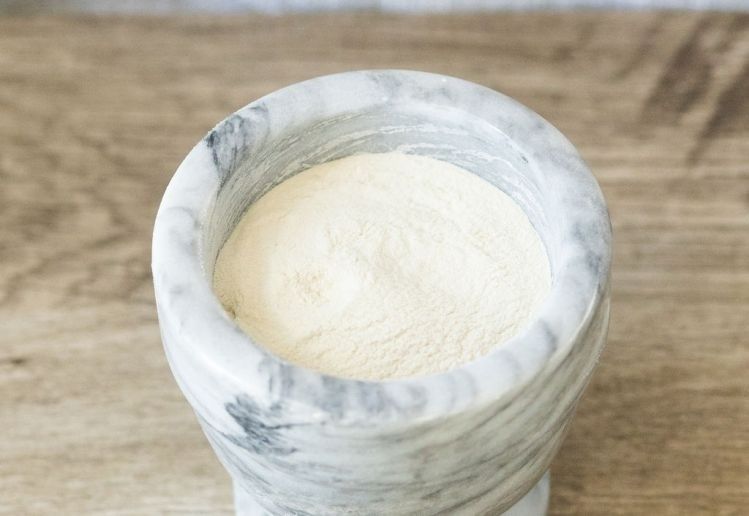Ingredients giant Döhler will dedicate “substantial fermentation capacity” to the production of a high-protein ‘postbiotic’ ingredient from biomass fermentation startup Superbrewed Food in order to support product launches in the US this year.
“We’ve been working on this for about two and a half years and we will be manufacturing in one of Döhler’s facilities in Europe in order to start delivering some pretty significant commercial quantities of our product this year,” founder Dr. Bryan Tracy told AgFunderNews.
He did not say whether Döhler would also distribute Superbrewed’s ingredients but added: “The partnership extends beyond a standard co-manufacturer relationship; it’s not an arm’s length CMO relationship.”
Dr Kilian Daffner, global product manager at Döhler, added: “The high functionality, nutrition and digestibility of Superbrewed’s innovative protein source is impressive, and desperately needed for a variety of consumer-facing applications. We look forward to working intensively together to introduce more nutritious, sustainable and cost-effective products to global food and beverage markets.”
Superbrewed has paused plans to retrofit an ethanol plant in Minnesota for large-scale anaerobic fermentation so it can focus on the partnership with Döhler and get products to market as quickly as possible. However, it hopes to revive the Minnesota project at a later date given the advantages of in-house manufacturing, said Tracy.
“The plant in Minnesota was a dry grind ethanol facility that was modified to make other bio-based chemicals. What’s really attractive about it is that it has the ability to make a clarified sugar feedstock that’s adequate for our fermentation so we wouldn’t have to pay a premium to buy highly-purified glucose.”
‘The most nutrient dense protein source on the planet’
Pitched by Tracy as “the most nutrient-dense protein source on the planet,” Superbrewed Food’s Non GMO bacterial biomass has unusually high protein content (85%), a PDCAAS (protein digestibility) score of 0.91 (which ranks higher than most plant proteins), and high levels of B vitamins including B12, plus minerals including iron and zinc.
With a neutral taste, natural white color, excellent pH and temperature stability, and good emulsification properties, it is attracting interest in dairy, alt-dairy, and hybrid dairy products, protein bars and snacks, protein powders, mixes and beverages, confectionery, and baked goods, claimed Tracy.
Superbrewed has also tied up with Bel Brands (Babybel, Laughing Cow) to create cheese products featuring the protein-packed ingredient, which is self-affirmed GRAS (Generally Recognized as Safe). Superbrewed has also notified the FDA of its GRAS determination and is waiting for a coveted ‘no questions’ letter from the agency.
Asked about the nature of market interest in the product, Tracy said: “This isn’t all about ‘alternative’ products. Customers are interested in the macro and micronutrients and the functional and sensory qualities.”
Biomass and precision fermentation are not the same
Unlike many precision fermentation companies that are left with large amounts of microbial biomass at the end of each batch that is either thrown away or sent to the animal feed market, Superbrewed Foods is harvesting the whole biomass to make a whole food ingredient. It has a co-product—butyric acid—for which there is an established market, noted Tracy.
“It’s a really simple separation process to remove the biomass, clean it up and dry it off. And on the butyric acid side, we finish the processing at a different facility.”
Rather than using genetic engineering to ‘program’ microbes to produce target proteins, Superbrewed Food is working with a bacterium that naturally produces high levels of protein when grown in an anaerobic [without oxygen] environment using sugars from a variety of feedstocks.
While protein-packed microbes may not sound very consumer-friendly, acknowledged Tracy, the notion of consuming bacteria has become very well established thanks to probiotics, although in the case of Superbrewed Food, the bacteria are not ‘live,’ but are fully deactivated, he stressed. “They’re entirely dead, and non spore-forming.”
According to Superbrewed Food, which is still working on labeling, its bacterium meets the definition of ‘postbiotic’ laid out in a recent ISAPP (International Scientific Association for Probiotics and Prebiotics) consensus paper (‘a preparation of inanimate microorganisms and/or their components that confers a health benefit on the host’).

A US patent (No. 2023/0320399) recently granted to Superbrewed Food allows key protections including:
- Coverage of all forms of bacterial-biomass proteins, including natural, non-GMO and GMO organisms that have a protein content of 60%+wherein at least 50% of cells are dead cells (Superbrewed is not selling live microorganisms or probiotics).
- Coverage of all forms of production methods, including aerobic and anaerobic, and all forms of feedstock, including sugar, agricultural waste and CO2.
- Coverage of the use of biomass protein in food products.
- Long term protection, as the patent protection runs through 2042.




